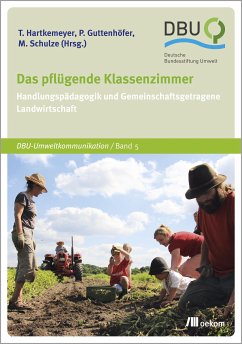
Biodiversity in the kitchen (eBook, PDF)
Cooking and caring for African Indigenous Vegetables in Kenya: A feminist approach to Food Sovereignty
Versandkostenfrei!
Sofort per Download lieferbar
Statt: 34,00 €**
26,99 €
inkl. MwSt. und vom Verlag festgesetzt.
**Preis der gedruckten Ausgabe (Broschiertes Buch)
Alle Infos zum eBook verschenken

PAYBACK Punkte
0 °P sammeln!
The role of biodiversity in shaping a sustainable future has never been clearer. But to conserve biodiversity means more than to be able to use genetic diversity for medicines or agricultural production. This book challenges this view and reveals that biodiversity is also central for socio-cultural well-being. It critically assesses practice and politics of biodiversity and food while attending to questions of gender and practices of care. The focus is on African Indigenous Vegetables in Kenya, which play an important role in the daily nutrition and livelihood of communities but have been almo...
The role of biodiversity in shaping a sustainable future has never been clearer. But to conserve biodiversity means more than to be able to use genetic diversity for medicines or agricultural production. This book challenges this view and reveals that biodiversity is also central for socio-cultural well-being. It critically assesses practice and politics of biodiversity and food while attending to questions of gender and practices of care. The focus is on African Indigenous Vegetables in Kenya, which play an important role in the daily nutrition and livelihood of communities but have been almost forgotten. The nexus between colonial politics, commercialization in agriculture and practices of reciprocity and collaboration is analyzed. The rich empirical analysis stresses the relevance of a new entry point to the debate of biodiversity, food and gender. The approach of »meal sovereignty« is developed to set out a feminist vision of food sovereignty that takes careful socio-ecological relations and actors who produce and consume as staring point. This way the author uncovers inaccuracies and misjudgments of prevailing food policies and demonstrates that women's practice and knowledge is a critical in building meal sovereignty and maintaining biodiversity.
Dieser Download kann aus rechtlichen Gründen nur mit Rechnungsadresse in A, D, I, L ausgeliefert werden.













